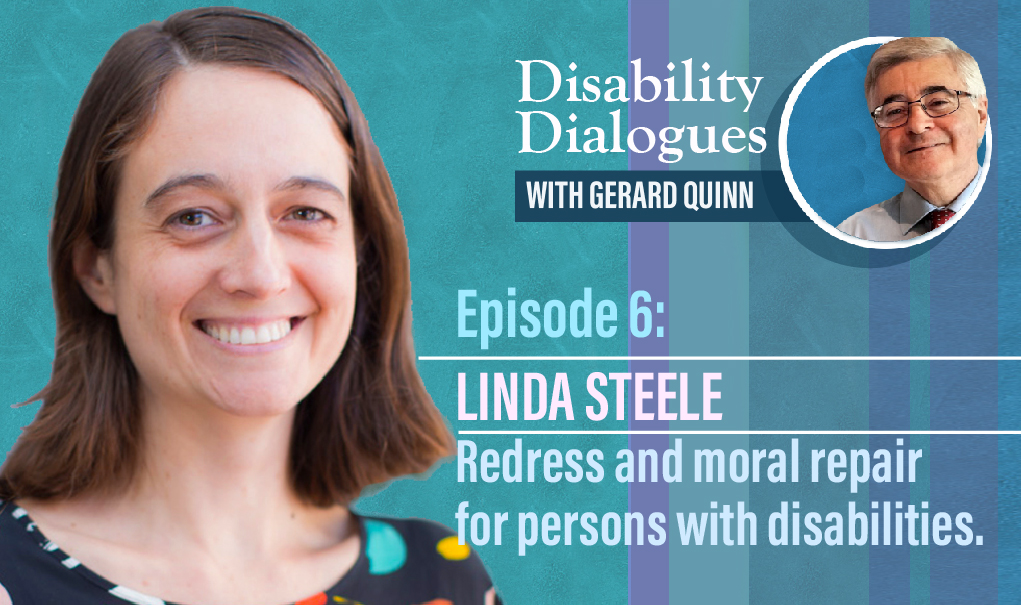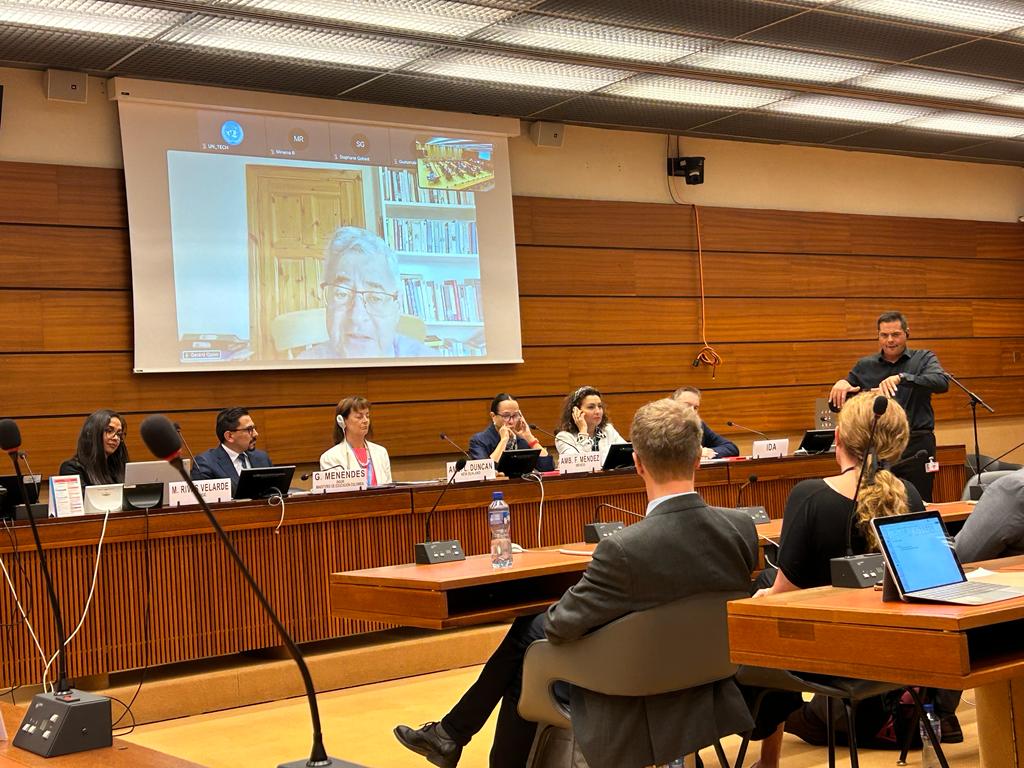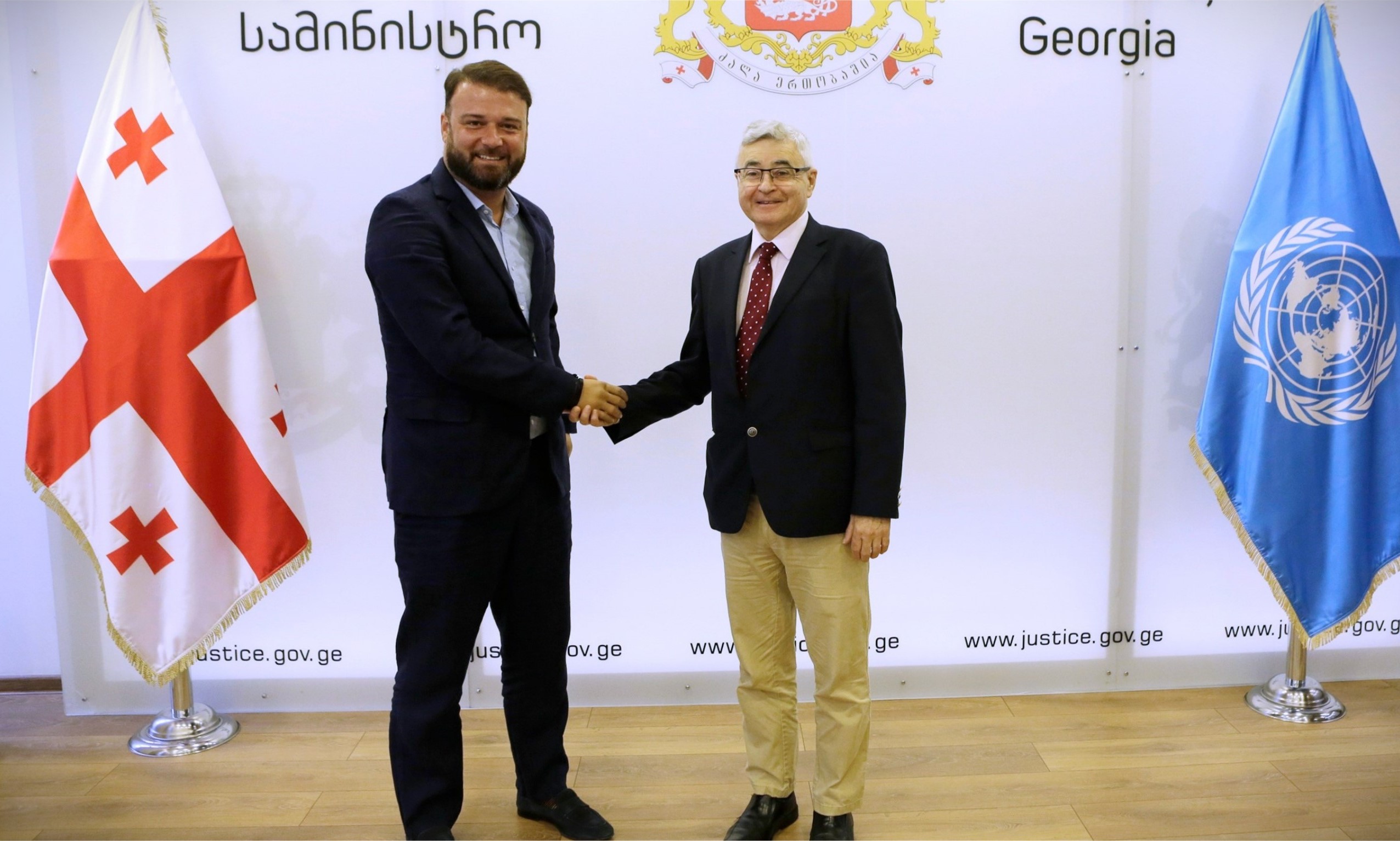The Convention on the rights of persons with disabilities revolutionised our understanding of autonomy, decision-making and legal capacity. It is time for the revolution to reach older persons.
A joint statement by Gerard Quinn, UN Special Rapporteur on the rights of persons with disabilities and Claudia Mahler, Independent Expert on the enjoyment of all human rights by older persons
One of the more important breakthroughs in recent years has been a complete re-think on autonomy, decision-making and legal capacity of both persons with disabilities and older persons. This is powerfully symbolised by Article 12 of the Convention on the Rights of Persons with Disabilities (CRPD) which seeks to restore full voice, choice and control to persons with disabilities over their own lives and with support as needed and requested.
Any future treaty on the rights of older persons is also likely to be grounded on dignity and autonomy.
A similar revolution of ideas is now permeating the field concerning the rights of older persons.
Any future treaty on the rights of older persons is also likely to be grounded on dignity and autonomy.
It is therefore of critical importance that the Hague Convention is interpreted and applied so as to positively accommodate the revolution of ideas in the CRPD and also to allow for maximum flexibility for a similar revolution in ideas (autonomy, legal capacity and supported decision-making) if and when a new treaty on the rights of older persons is adopted.
To promote coherence in the understanding of these critical ideas across international laws protecting adults and those promoting the rights of persons with disabilities, Prof. Quinn commissioned a Study entitled ‘Interpreting the 2000 Hague Convention on the International Protection of Adults Consistently with the UN Convention on the Rights of Persons with Disabilities’, which was produced by Professor Sonia Rolland and Alex Ruck Keene. The study concerns the coherence of international law as it affects both persons with disabilities and older persons.
As is well known, the Hague Convention on the International Protection of Adults (2000) was drafted well before the CRPD (2006) and was specifically intended to cover both persons with disabilities and older persons. It was designed to deal with, and provide a mechanism to mitigate, any conflict of laws between States with respect to persons with disabilities and older persons.
As the Study clearly explains, the Hague Convention (2000) was never intended to cement into place any particular substantive understanding. Typically, that is not the function of conventions adopted under the aegis of the Hague Conference on Private International law. Additionally, the Hague Convention (2000) certainly contains the flexibility and capacity to evolve beyond the typical legislative and policy responses of the late 1990s.
As well documented in the Study, although the Hague Convention mentions guardianship as a ‘protective measure,’ it does not lock that into place. Indeed, the definition of ‘protection’ is open-ended in the Hague Convention (Article 3). That means that the conflicts provisions in the Hague convention can be (and ought to be) progressively re-purposed accordingly, as States transition away from guardianship regimes and migrate toward assisted decision making regimes (as they are obliged to under the CRPD).
Because the definition of ‘protection’ is open ended in the Hague Convention, this means there is plenty of space for it to be re-focused on protective measures that provide supports to enable a person to voice their own wishes and preferences. That is to say, henceforward, that ‘protection’ should primarily be understood to mean protecting the integrity of systems to support the decision-making processes of individuals and not to ‘protect’ them by taking their voice away.
The world certainly needs ways of mitigating conflicts of laws that will inevitably arise between different supported decision-making regimes. By such conscious re-purposing, the Hague Convention can serve a useful purpose in underpinning and not undermining the paradigm shift of the CRPD.
The Study emphasises that both instruments (the CRPD and the Hague Convention) themselves foresee a process of normative interaction.
Article 49.1 of the Hague Convention is to the effect that ratification of the same does not affect any other international instrument to which the Contracting States are parties. We view this as implying that the CRPD takes effective precedence on substance. That is to say, the CRPD requires the migration away from guardianship. The fact that States still have traditional guardianship laws in place is not something that is driven by, much less required by, the Hague Convention. When States migrate toward supported decision-making regimes (as they ought to in order to meet their requirements under the CRPD) then the conflicts rules of the Hague Convention will latch on to the new support systems.
Similarly, Article 4.4 of the CRPD is to the effect that nothing in the CRPD shall inhibit any other international measure that is more conducive to the rights of persons with disabilities. Viewed this way, the preservation of guardianship regimes can certainly not be understood as more conducive – thus serving to ratchet forward State practice in the direction of supported decision-making regimes.
We take note of abundant practice outlined in the Study concerning conventions adopted within the Hague system for the same to evolve in terms of their underlying material scope. To our mind, this gives sufficient play in the joints for the conflicts rules in the Hague Convention (2000) to migrate away from guardianship and latch onto new support regimes.
However, this is not the end of the matter.
Both the Hague Conference on Private International Law and the Committee on the Rights of Persons with Disabilities have some positive responsibilities to nudge matters forward (and especially State practice).
We especially welcome the draft Declaration proposed in the study for States that are considering ratifying the Hague Convention. To our satisfaction, this would build on Articles 49 of the Hague Convention and 4.4 of the CRPD and ensure a forward momentum. States that join the Hague Convention should be clear that their primary obligation is to phase out guardianship (under the CRPD), and should not fall back on the Hague Convention as an excuse or pretext to preserve it. To make this plain, and especially to ensure the Hague Convention can play a positive role in the future (with respect to conflicts between different supported decision-making regimes), the Hague Conference should make it abundantly clear to new Parties that ratification does not imply acceptance of guardianship.
With respect to the Hague Conference on Private International law, we take note and approve the recommendations in the Study to the effect that:
- it should make express reference to the CRPD in its Practical Handbook currently under preparation,
- that a specific session of the Special Commission in 2022 should be held on the complementarity between the CRPD and the rights of older persons and the Hague Convention;
- to request States in any questionnaires directed to them to identify the place of the CRPD within their domestic legal frameworks;
- to consider mechanisms (including a possible Additional Protocol) to enable individuals to state their “will and preferences which should be followed at a time when they may not be in position to communicate their wishes to others” (see General Comment No. 1 of the CRPD Committee).
With respect to the CRPD Committee and the UN system generally, we take note of the recommendations in the Study to the effect that (1) continued work of the Special Rapporteur [on the rights of persons with disabilities] should take place to assist the process of achieving greater coherence of international law; (2) the drafting of General Comments or guidance from the CRPD Committee regarding the future role the Hague Convention can play in supporting the implementation of the CRPD would also be useful and that (3) parallel work with the UN Open Ended Working Group tasked with considering drafting a treaty on the rights of older persons should take place to ensure that whatever text that eventuates form that process (on autonomy and decision-making) is similarly underpinned by the Hague Convention.
We take note of the proposal (dated 27 May, 2021) of the General Secretariat of the Council of the European Union for Council Conclusions which align closely with the analysis and recommendations of the Study.
We thank Sonia Rolland and Alex Ruck Keene for their excellent work, which points to a constructive way forward. We stand ready to assist in future work that may be needed to ensure greater coherence in this most important field of law.






